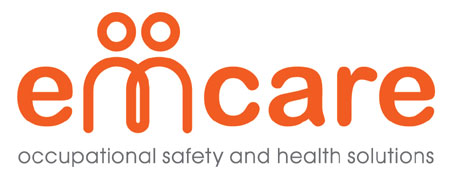In today’s fast-paced workplace, mental health challenges are more prevalent than ever. For organisations across Scotland, ensuring employee wellbeing isn’t just an ethical imperative—it’s a proven driver of productivity, engagement, and retention. Scotland’s Mental Health First Aid (SMHFA) and mental health training offer organisations a robust, credible strategy to foster supportive, resilient workplaces.
This blog explores the business case for SMHFA & mental health training in Scotland, focusing on measurable impact in costs, staff morale, reputation, and legal compliance. We’ll detail how these programmes can benefit your organisation—and how EmCare facilitates you doing so, with trusted, accessible training offerings.
To explore or book training, see our mental health courses page, and get in touch via our Contact Us page or by calling 0141 404 0075.
The Business Cost of Poor Mental Health in Scotland & the UK
It’s vital to start with the numbers. Across the UK, mental health issues are a leading cause of absenteeism, diminished productivity, and increased staff turnover.
- Studies highlight staggering figures: £57 billion lost in 2023 due to mental-health-related productivity decline and absence.
- SMEs have grappled with a 20 percent increase in mental-health-related sickness absences over the past year; in response, 63 percent of businesses have introduced mental health first-aiders in the workplace.
These rising costs pose a major risk—not just financially, but to engagement, morale, and reputation. For Scottish businesses, which often operate in close-knit communities and competitive sectors, poor workplace wellbeing can quickly become a brand and operational liability.
The ROI: Why SMHFA Delivers Value
Investing in mental health training isn’t just about doing the right thing—it pays dividends:
- Deloitte’s ROI research shows a return of £4.70 for every £1 spent on workplace mental health support.
- Other sources estimate the business cost of mental ill-health to be between £43–45 billion, with presenteeism and turnover making up significant shares—and proactive training delivering about £6.30 return per £1 spent.
These figures indicate that SMHFA and mental health training not only reduce risk, but tangibly improve the bottom line. By creating an environment where staff are supported early, businesses save on recruitment costs, minimise lost productivity, and see higher retention.
What Is SMHFA & What Does It Offer?
Scotland’s Mental Health First Aid (SMHFA) is a public-health supported, high-quality training standard designed to equip ordinary people with the skills to provide initial support.
- SMHFA is a 12-hour course, typically delivered over two full days, or in condensed formats of four half-days or six two-hour sessions.
- Upon completion, delegates receive a nationally recognised certificate endorsed by Public Health Scotland or NHS Health Scotland.
Core content includes:
- Recognising signs of depression, anxiety, psychosis, self-harm, suicidal ideation
- Developing empathetic communication and listening skills
- Suicide intervention guidance and ‘recovery messaging’
- Signposting to professional support and helping until help arrives
SMHFA does not train people to be therapists—but equips them with immediate support skills, helping prevent escalation and encouraging timely professional help.
Benefits of SMHFA & Mental Health Training (The Business Case)
Here’s why investing in SMHFA & mental health training is smart business:
Reduced Absence & Turnover, Increased Productivity
Mental health issues account for climbing absence rates and unseen presenteeism. Trained staff are better positioned to support colleagues early, reducing costly lost time and turnover.
Enhanced Employer Brand & Talent Attraction
Modern employees expect mental health provision as standard. Companies that invest in training signal they value wellbeing—and in turn, attract top-tier talent who are seeking supportive employers.
Stronger Staff Engagement & Workplace Culture
Workers feel supported when colleagues—and especially managers—are trained to listen authentically. This improves morale, trust, and overall workplace satisfaction.
Fulfilling Legal and Duty of Care Obligations
Employers in Scotland have duty-of-care responsibilities. SMHFA demonstrates proactive commitment towards mental wellbeing and can reduce legal or insurance risks, ensuring compliance with occupational health standards.
Breaking Stigma & Promoting Wellbeing
Training fosters open conversations, counters stigma, and equips organisations to respond rapidly to emerging mental health concerns, boosting overall workforce resilience.
SMHFA in Action: Scotland’s Developed Public Approach
Scotland’s uptake of SMHFA underscores its value:
- Since 2014, significant government funding has been directed at expanding access to SMHFA, especially targeting areas with high deprivation or suicide rates. The programme has been embedded into Scotland’s 10-year Mental Health Strategy and Suicide Prevention Action Plan.
- Public Health Scotland delivers support via Healthy Working Lives, including free training and guidance to employers.
This alignment with national policy underscores SMHFA’s credibility and effectiveness—when businesses opt for it, they’re joining a well-regarded, government-backed movement.
Making the Case Internally: How to Build Your SMHFA Proposal
To get buy-in, you’ll need to speak both head and heart:
- Present data: Use UK figures (e.g. £57 billion cost, ROI metrics) plus internal stats (absence, turnover costs, engagement survey results).
- Highlight pilot success: Run a small-scale SMHFA course, measure results, then scale.
- Tie to company goals: Link training to retention, productivity, employer brand, legal standards.
- Include personal stories: Invite anonymised anecdotes or leadership examples emphasising wellbeing.
- Set KPIs: Track post-training metrics like reduced absence, increased wellbeing survey scores, retention improvements.
This structured approach demonstrates both financial logic and human impact—making approval easier at leadership level.
Why Choose EmCare for Your SMHFA & Mental Health Training?
At EmCare, we offer comprehensive mental health training solutions, tailored for Scottish businesses:
- Explore our full range of mental health courses, including SMHFA—available both in-person and online.
- Our services align with SMHFA’s high standards and Public Health Scotland reassurance, ensuring quality delivery.
- We simplify booking—visit our page to register or reserve your team’s places directly.
- Prefer a chat first? Contact us via the Contact Us page or give us a call at 0141 404 0075—we’re here to guide you every step of the way.
Real-World Examples in Scotland & Beyond
Though specific to Scotland, practitioners across industries have seen success:
- In Scotland, a broad roll-out across local authorities, services, and schools has helped raise wellbeing awareness and accessibility.
- UK businesses like Liverpool John Lennon Airport and SME Kompan reported reduced absences and improved support culture following mental health first aid training.
These examples affirm that SMHFA is not just theory—it delivers tangible benefits across sectors, from hospitality to education and beyond.
Conclusion
SMHFA & mental health training in Scotland isn’t a tick-box. It’s a sustained, strategic investment that boosts wellbeing, productivity, culture, and resilience—while delivering strong returns on investment and demonstrating your organisation truly cares.
To begin, browse our mental health courses or get in touch at 0141 404 0075 or via our Contact Us page. Let EmCare guide your team towards a mentally healthier, more engaged future.


